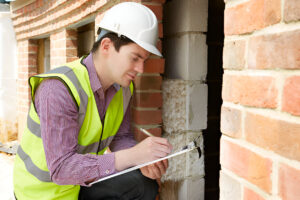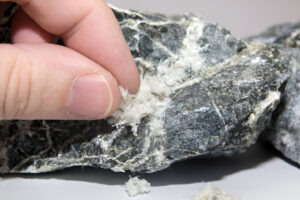If you’ve noticed an air conditioner dripping sound coming from the pipes, you might brush it off as normal. After all, AC systems deal with condensation every day. But when that water doesn’t drain properly, it can create more than just an annoying noise — it can lead to hidden water damage and mold growth inside your home.
Moisture that lingers in your HVAC system can seep into walls, ceilings, and even ductwork, creating the perfect conditions for mold to spread. Once mold begins to grow, it can affect your indoor air quality and trigger health symptoms like allergies, coughing, and sinus irritation.
In this guide, we’ll break down what a dripping sound in AC pipes really means, the risks it poses, and the warning signs homeowners should watch for. You’ll also learn when it’s time to call in a professional inspection to make sure mold isn’t silently spreading through your home.
What Does a Dripping Sound in AC Pipes Mean?
A faint dripping sound in AC pipes usually comes from condensation — the natural byproduct of cooling warm air. When your air conditioner runs, moisture collects on the coils and drains away through a pipe system. Some level of dripping is completely normal, especially on hot or humid days.
The problem begins when the sound becomes more noticeable or constant. This could mean that water is collecting in the drip pan, backing up in the drain line, or leaking into places it shouldn’t. Over time, that extra moisture can seep into walls, ceilings, or insulation around the unit.
Excess water in hidden spaces does more than cause structural damage. It creates the perfect environment for mold growth, which can spread quickly once it takes hold. Just like with washing machines or refrigerators, even small leaks can spiral into bigger problems if they’re not addressed.
Check out our blog on how leaky appliances lead to water damage and mold to see how everyday household systems can create similar risks.
When ignored, that “simple” dripping noise may be the first sign that your AC system is contributing to hidden mold inside your home.
Hidden Risks of Air Conditioner Dripping Sounds
A persistent air conditioner dripping sound isn’t just annoying. It’s often one of the first warning signs of more serious problems hiding beneath the surface.
- Mold growth: Where there’s moisture, mold isn’t far behind. Water that collects from AC condensation can seep into ductwork, drip pans, or wall cavities and lead to mold colonies. Mold in AC systems can spread spores throughout your home, reducing indoor air quality and risking health. (See our article on mold in air conditioners: the hidden danger and how to eliminate it)
- Water damage to building materials: Leaks don’t stay localized forever. Unaddressed dripping can damage ceilings, walls, insulation, and even flooring, leading to costly structural issues and appearance problems.
- Poor indoor air quality and allergen spread: Mold spores released due to moisture from AC leaks can circulate through your HVAC system. This increases exposure, especially for people with allergies, asthma, or respiratory sensitivities.
- Health impacts: Exposure to mold can cause coughing, sneezing, sinus congestion, lung irritation, and in some cases more serious respiratory issues. For vulnerable individuals (like young children, older adults, or those with compromised immune systems) the effects can be worse.
Knowing these risks makes clear that an odd drip or trickle is often much more than a minor nuisance. It’s a sign to inspect and address moisture before mold takes hold.
Common Causes of Dripping Noises
A dripping sound in AC pipes can come from several sources. While some are benign, others can lead to hidden water damage and mold growth. Understanding what causes these noises can help you spot early warning signs before problems get worse.
Common causes include:
- Clogged or blocked condensate drain line — Debris, algae, or hardened sludge can slow or block drainage, causing water to back up and drip.
- Damaged or rusted drain pan — If the pan is cracked, warped, or corroded, water can leak instead of draining properly.
- High humidity & excessive condensation — In humid climates or poorly ventilated spaces, condensation may form faster than the AC can drain it, leading to more dripping.
- Melting ice on coils — Ice buildup on the evaporator coil can melt when the system turns off or cycles, producing dripping noise.
Any of these issues, which allow moisture to stay where it shouldn’t, can turn into a mold-breeding environment. Mold spores thrive in damp, hidden spaces like drain lines or inside AC units. For a closer look at how mold can spread in these situations, see our article on mold in HVAC systems and buildings.
Not every drip means mold. But repeated dripping or unresolved moisture is often the precursor to water damage and mold growth.
What Homeowners Can Do
If you hear a persistent air conditioner dripping sound, there are proactive steps you can take to reduce water buildup and protect your home from hidden mold and water damage:
- Inspect visible signs and clean regularly — Take a look at AC drip pans, condensate lines, filters, and around the outdoor unit. Remove debris, clean filters, and ensure drains are flowing freely.
- Keep indoor humidity under control — Use dehumidifiers, run exhaust fans in bathrooms and kitchens, and keep windows open if possible. Mold thrives where moisture lingers.
- Pay attention to musty odors or discoloration — These are early warning signs of mold. If you notice water stains, soft walls, or peeling paint around AC components, act fast.
- Consider professional mold inspection — When the dripping persists or symptoms appear (musty smell, elevated allergies, visible mold), a trained inspection can reveal moisture intrusion and mold you might not see. Our blog post on mold in AC units—how to spot, remove, and prevent it explains where mold often hides and what to look for.
These steps won’t replace expert remediation when needed, but they give homeowners tools to catch problems early, reduce mold risk, and maintain a healthier living space.
When to Call for a Professional Inspection
Some moisture-related issues from air conditioners can be addressed through regular maintenance. However, certain situations warrant professional inspection to prevent potential mold growth and water damage:
- Persistent Dripping or Visible Leaks: Continuous dripping sounds or visible water leaks around the AC unit may indicate underlying issues such as clogged condensate lines or damaged components. If these problems persist despite basic maintenance, it could lead to water accumulation and mold growth.
- Water Stains Around AC or Nearby Walls/Ceilings: Discoloration or staining on walls and ceilings near the AC unit can be a sign of water leakage. These stains may not only indicate current moisture problems but also potential mold growth behind walls or ceilings.
- Musty Odors or Allergy Symptoms: A persistent musty smell near the AC unit or in the vicinity can be indicative of mold growth. Additionally, if household members experience increased allergy symptoms, such as sneezing, coughing, or respiratory issues, it may suggest mold presence, even if it’s not visibly apparent.
In such cases, it’s advisable to seek professional mold testing to accurately assess the situation and determine the extent of any potential mold growth. Early detection and intervention can help mitigate health risks and prevent further damage to the property.
Conclusion
If you’re hearing a persistent air conditioner dripping sound, it’s more than just an inconvenience—it could indicate hidden moisture buildup that may lead to mold growth and water damage. Addressing the issue promptly can help prevent potential health risks and costly repairs.
Have you noticed persistent dripping, water stains, or musty odors near your AC unit? If so, you should seek a professional inspection. Early detection can help mitigate health risks and prevent further damage to your property.
For a thorough assessment and peace of mind, contact us today to schedule a professional mold inspection.
Frequently Asked Questions
- Is it normal for my air conditioner to make a dripping sound?
Some dripping noises are normal because AC units naturally produce condensation while cooling air. However, persistent or loud dripping may indicate a clog, leak, or water backup that can lead to mold growth if left unaddressed. - Can a dripping AC pipe cause mold growth in my home?
Yes, water that accumulates from a leaking AC can seep into walls, ceilings, or ductwork, creating a perfect environment for mold to grow. Mold can spread quickly, affecting indoor air quality and potentially causing health issues. - When should I call a professional about AC dripping noises?
If dripping continues despite basic maintenance, or you notice water stains, musty odors, or allergy symptoms, it’s time to call a professional. A certified inspection can identify hidden mold and water damage before the problem worsens.
Also Read
- Midea Recalls 1.7 Million Air Conditioners Due to Mold Concerns
Learn about the recent recall of Midea U and U+ window air conditioners due to mold growth risks and what steps you should take if you own one. - Do You Have Mold in Your Air Conditioner? Check for These Signs
Discover the common indicators of mold presence in your AC unit and how to identify them early. - Moldy Air Conditioner Makes You Sick
Understand the health risks associated with moldy air conditioners and the symptoms to watch out for. - The Science Behind Black Mold Testing
Delve into the scientific methods used in black mold testing and why it’s crucial for your health and safety. - Free Mold and Mildew Inspections: What You Need to Know Before Saying Yes
Get informed about the pros and cons of free mold inspections and how to make an informed decision.




